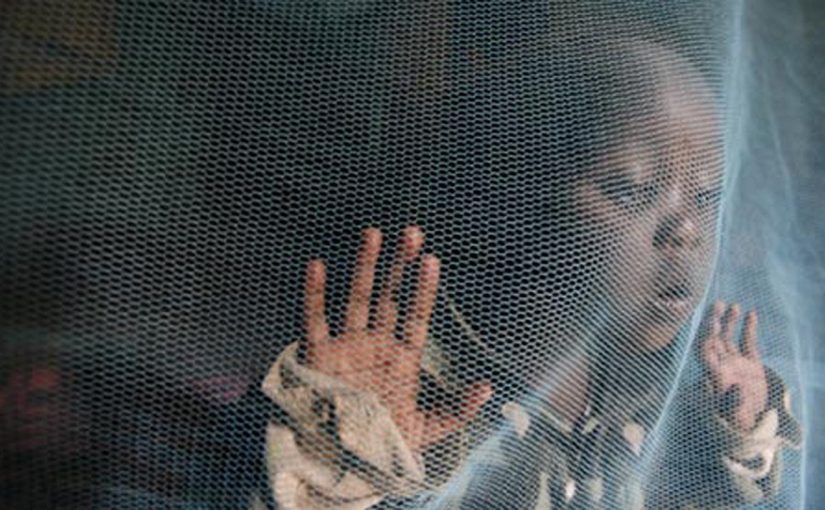Mozambique: 10 lecturers dismissed for sexual harassment
Malaria claims 1,700 lives in less than two years in Mozambique – MISAU

A young girl plays inside a mosquito net in Kibera, Nairobi. Picture: EPA/Stephen Morrison
At least 1,700 of the more than 10 million cases of malaria reported in the past 21 months at various health facilities in the country have resulted in death.
The figure emerged on Saturday in Chimoio, the provincial capital of Manica, when Minister of Health Nazira Abdula addressed an event launching a national malaria awareness campaign under the motto “Sleep Under Mosquito Nets, Protect Yourself from Malaria”.
Abdula said that malaria was one of Mozambique’s biggest public health problems, with more than six million cases reported this year already.
In the first nine months of the year, 5,591,391 cases were reported, with 754 deaths, the minister said. The province of Manica, which is hosting the event, registered 509,896 patients, 9 percent of the national total.
In 2016, according to the minister, 4,612,514 patients were diagnosed with malaria at national level, of which 900 died. These numbers worry the government because of their size and the fact that they are growing, although the number of deaths is falling satisfactorily.
The health minister said the initiative aimed to increase knowledge about malaria prevention measures and strengthen ongoing actions to eradicate the disease.
But obstacles to the control of the disease still prevail in the country, she said, highlighting the permanent existence of the mosquito in the environment and the natural coexistence with the vector that propagates the disease.
The mosquito, she said, was not seen as a danger by communities and little was done about it. Communities believe that malaria is inevitable and treatable.
“Although many of us are aware that malaria is an avoidable, curable but deadly disease, we remain reluctant to resort to the interventions available for prevention,” said the minister, citing this as one of the seven obstacles identified as jeopardising efforts to eradicate the disease.
Delay in seeking hospital treatment once symptoms appear is another, exacerbated by the fact that “many people first resort to medicines at home or purchased without diagnosis”.
Resistance to household spraying campaigns persists, especially in urban areas, and sleeping in a mosquito net every night is still seen as a major challenge.
“Many claim that nets are suffocating, and in some homes, priority is given to the head of the household, multiplying the number of mosquito that transmits malaria,” she said .
It was clear, she said that all existing means and opportunities for a relentless fight against malaria must be engaged. Ministry of Health interventions should be deeper and more complementary.
The current campaign emphasised environmental management and communication for social and behavioural change to increase awareness of prevention measures.
The National Mosquito Net Distribution Campaign was launched in 2016 with the aim of distributing 16 million mosquito nets to the country’s households. To date, about 12 million nets have been distributed in provinces in the central and northern regions of the country, with roll-out expected in the southern region next month.
By Victor Machirica












Leave a Reply
Be the First to Comment!
You must be logged in to post a comment.
You must be logged in to post a comment.